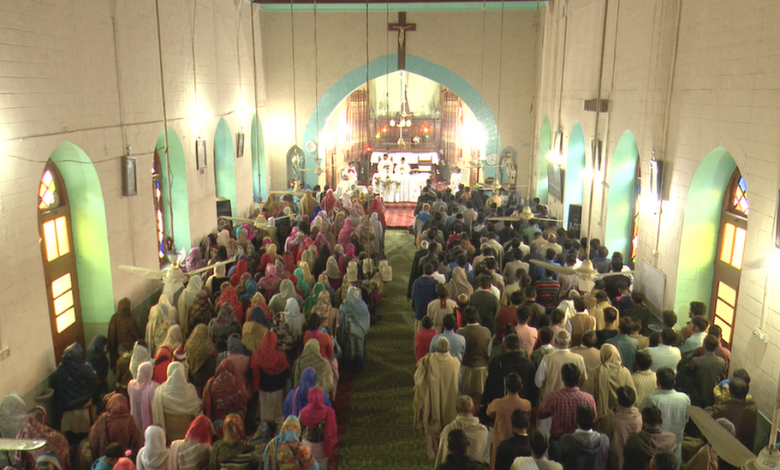
Mardan: Hasan Aryan, a Christian resident of Mardan, claims he was denied a job in the Khyber Pakhtunkhwa Revenue Department despite passing the test and interview for the position of Patwari (land revenue officer) in 2022 and completing a one-year training course.
According to Aryan, other candidates who passed the same test, interview, and course were hired, but despite multiple reminders to senior officials regarding his appointment under the minority quota, he remains unemployed. He alleges that appointments in the department are made based on recommendations, but unfortunately, even his rightful quota-based appointment was denied.
Javed Masih, a social activist from Mardan, states that minority candidates are rarely employed under the reserved quota in government jobs. Even when a position is announced in compliance with the law, Hindu or Sikh candidates are often selected due to their better educational qualifications compared to the Christian community.
Legal expert Sadaf Ashraf Advocate, also from Mardan, explains that Pakistani law reserves a five percent quota for minority communities in government jobs. However, this quota is often overlooked, especially in places where the number of available jobs is already low. In Mardan, several government departments do not employ members of minority communities, indicating non-compliance with the quota.
Jalwa Sahar, Executive Director of the NGO “Ujala Sahar,” which works for minority rights in Mardan, says that minorities face significant challenges in the district, similar to other parts of the country. "The core issue is with policies. Laws and policies should ensure not only the protection of minority rights but also include a system to penalize violators so that the minority community does not feel deprived," she suggests.
Also Read: Attack on Frontier Corps Camp in Mohmand District Near Afghan Border
According to Pakistan's seventh census, the Christian population in Mardan district stands at 10,000, including 5,300 women. The Hindu community consists of 30 families with a total of 145 people, while the Sikh community has 54 families, totaling 468 people. More than 2,000 youth from minority communities in Mardan are currently unemployed, with 14 serving as doctors and around 50 holding other government jobs.
Ashob Kapoor, a member of the local government and president of the Sikh community in Mardan, points out that minority youth face difficulties finding employment outside the district. He highlights the challenges of securing jobs due to the limited five percent quota against a high number of applicants and notes that some individuals are disqualified due to lower educational standards.
Nighat Seema, an activist for minority youth rights, emphasizes the need for awareness among minority communities about their rights and the various institutions that support them. "There is an urgent need to increase awareness of rights among minority youth. In Mardan and across the province, discussions about minority quotas are usually limited to Class Four jobs, with little focus on higher positions," she adds.
Saima Amanat, a Christian from Mardan, argues that even if the minority job quota were increased to ten percent, securing employment would still be challenging. She alleges that bribes often take precedence over merit in job appointments: "It’s not just minority youth but also the majority who face issues of bribery. Very few minority individuals hold good positions in Khyber Pakhtunkhwa; a government job is almost like a dream for them."
Currently, eight individuals from minority communities work in the Mardan district administration office. Deputy Commissioner of Mardan, Fayaz Khan Sherpao, asserts that the district government is making every effort to implement the minority job quota. He mentions that six Class Four workers and two computer operators have been hired so far, and tests and interviews have been conducted for a vacant junior clerk post reserved for minority candidates.
Seema stresses the need for strong laws and policies, as well as a proper enforcement mechanism to ensure minorities receive their rightful job quotas and resolve other issues.